Culture of Niger
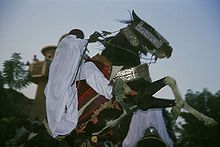
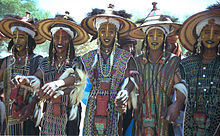
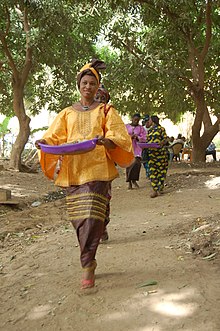
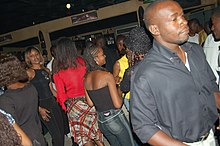
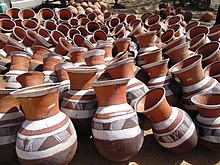
The culture of
In religion, Islam, spread from North Africa beginning in the 10th century, has greatly shaped the mores of the people of Niger. Since Independence, greater interest has been in the country's cultural heritage, particularly with respect to traditional architecture, hand crafts, dances and music.[citation needed]
National culture
While successive post-BA governments have tried to forge a shared national culture, this has been slow forming, in part because the major Nigerien communities have their own cultural histories, and in part because Nigerian ethnic groups such as the
Arts
Festivals
Religion
Languages
While
Literature
Cuisine
Sport
While traditional sports like horse racing, camel racing, and sorro wrestling survive, world sports like football dominate in urban areas. In the 1972 Summer Olympics, boxer Issake Dabore won a bronze medal, and Niger has sent athletes to all Summer Olympic Games held since 1964, except for 1976 and 1980.[citation needed]
See also
- Demographics of Niger
- Media of Niger
- Seasonal migration in Niger
References
- ^ See Finn Fuglestad. A History of Niger: 1850-1954. Fuglestad argues that continuity was more important than change in the colonial period, and that Niger was never effectively governed by the French. When independence came, Fluglestad says this came from the pressure of outside forces (other colonies, world events) not the pressure of a modern political class, which in the 1950s simply did not exist in Niger.
- ^ Bureau of Democracy, Human Rights and Labor (September 14, 2007). This article incorporates text from this source, which is in the public domain.
- ^ Samuel Decalo (1979) pp. 156-7, 193-4.
- James Decalo. Historical Dictionary of Niger. Scarecrow Press/ Metuchen. NJ - London (1979) ISBN 0-8108-1229-0
- Finn Fuglestad. A History of Niger: 1850-1960. Cambridge University Press (1983) ISBN 0-521-25268-7
